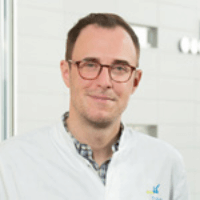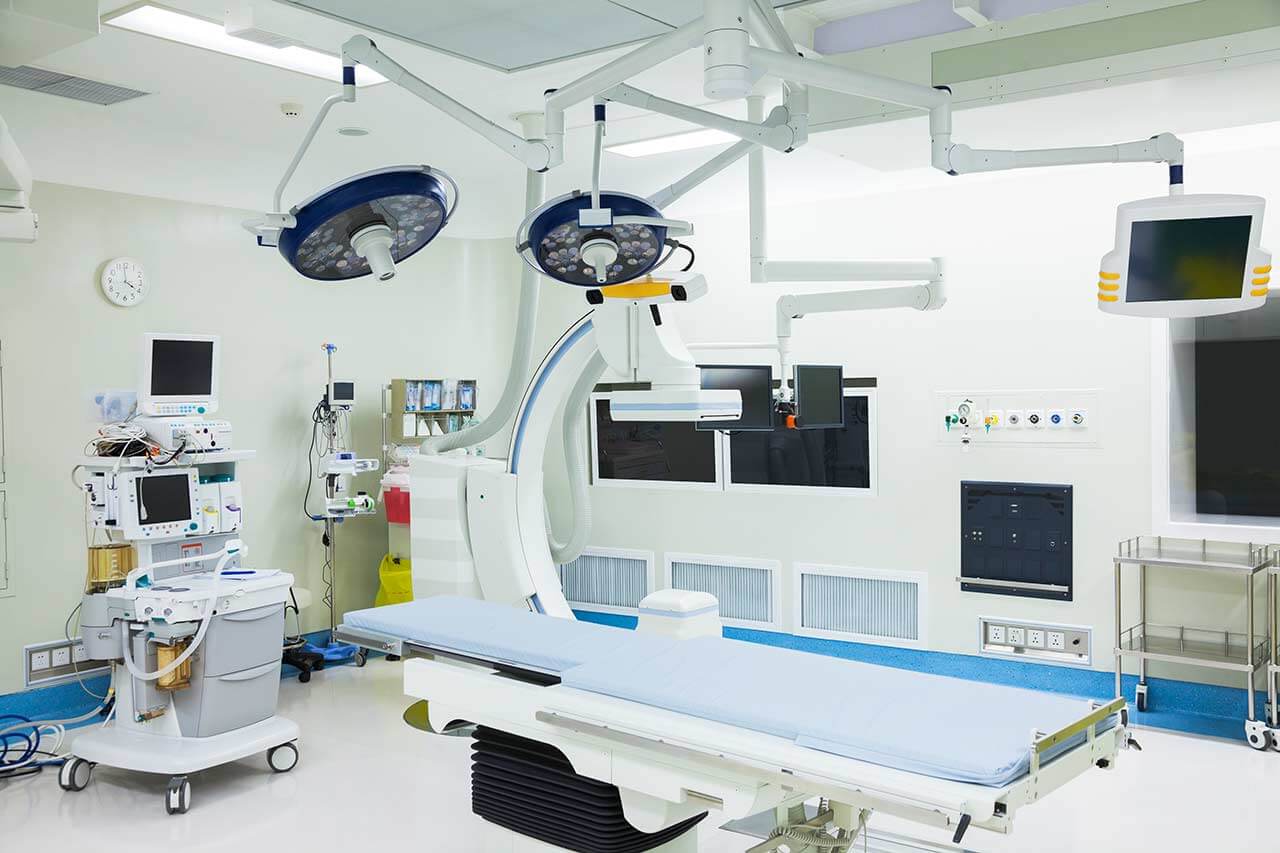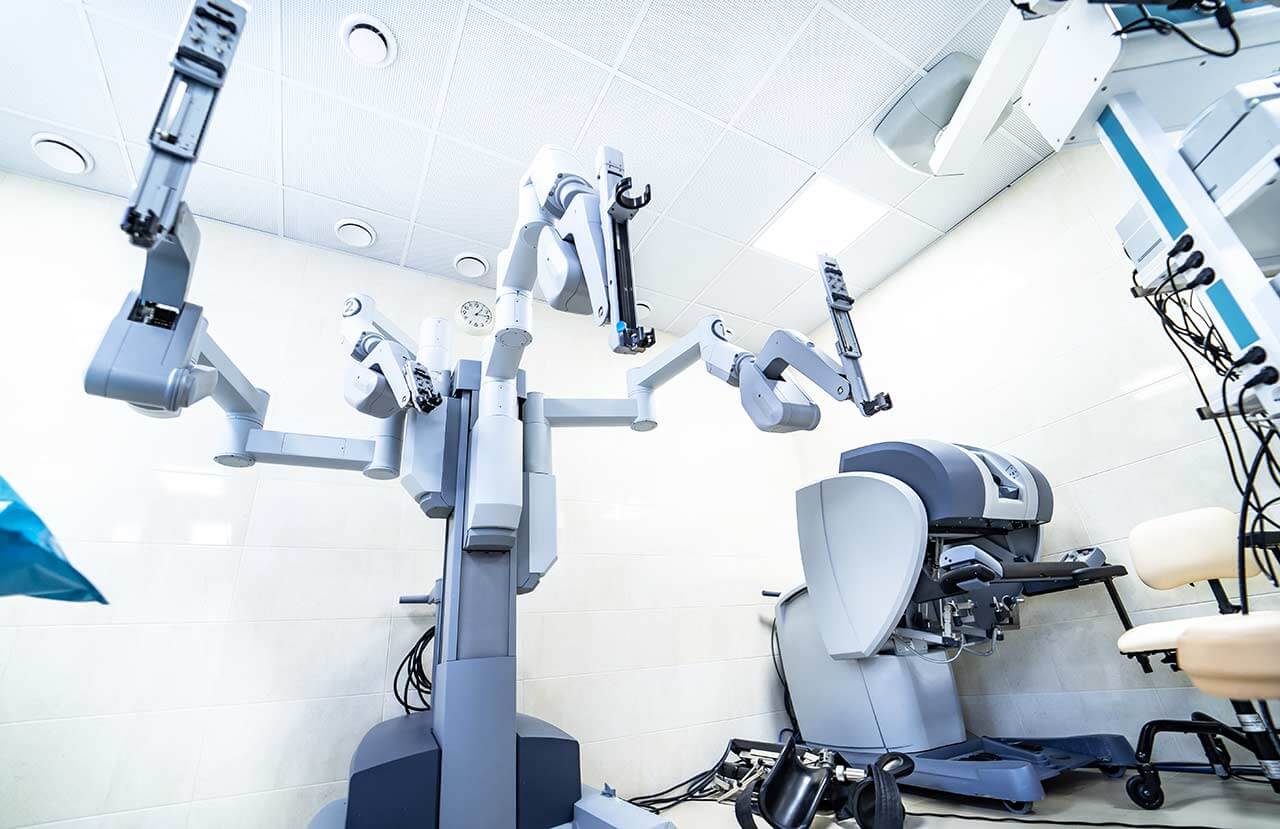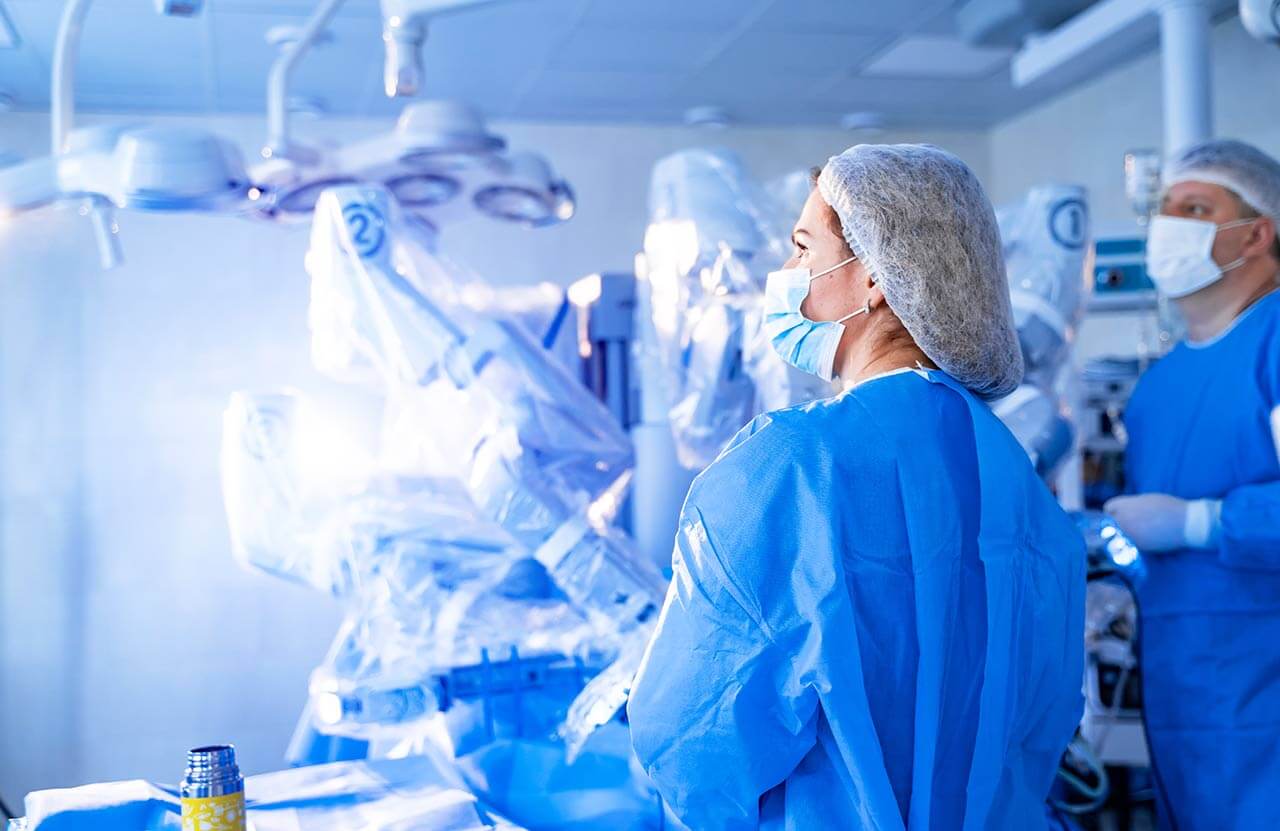
The program includes:
- Initial presentation in the clinic
- clinical history taking
- review of medical records
- physical examination
- urological examination
- laboratory tests:
- complete blood count
- general urine analysis
- biochemical analysis of blood
- inflammation indicators (CRP, ESR)
- indicators of blood coagulation
- tumor markers
- ultrasound scan of the urogenital system
- CT scan/MRI of the abdomen and pelvis
- preoperative care
- da Vinci kidney removal
- histological and immunohistochemical
examination of the removed tissues - symptomatic treatment
- control examinations
- the cost of essential medicines and materials
- nursing services
- full hospital accommodation
- explanation of future recommendations
How program is carried out
During the first visit, the physician will conduct a clinical examination and go through the results of the available diagnostic tests. After that, you will undergo the necessary additional examination, such as the assessment of liver and kidney function, ultrasound scan of the genitourinary system, CT scan and MRI. Based on the results of an additional examination, the physician will clarify the stage of the oncological process, choose the surgical technique and the type of anesthesia.
Surgery with the da Vinci robot starts with general anesthesia. After anesthesia, the surgeon makes small incisions on the anterior abdominal wall, through which he inserts the da Vinci robot manipulators and a video camera into the abdominal cavity and retroperitoneal space. With the help of manipulators, the doctor dissects the ligamentous apparatus of the kidney, excises the affected part of the kidney, or removes the entire organ. The video camera continuously transmits a three-dimensional image of the surgical area in 12-fold magnification to the monitor. The part of the kidney is removed, the surgeon installs a drainage into the abdominal cavity and finishes the operation.
By assessing the kidney blood supply to the FireFly mode, the surgeon ligates or coagulates large blood vessels in advance. This can significantly reduce blood loss during surgery, while maintaining the blood supply to the healthy part of the kidney. Resection of a malignant tumor with the da Vinci robot preserves kidney function as much as possible.
After the completion of the operation, you will be transferred back to the ward, under the supervision of the attending physician and nursing staff. Due to the minimal invasiveness of the operation and the short duration of general anesthesia, you will not need to stay in the intensive care unit for a long time.
Finally, the attending physician will evaluate the results of control examinations, schedule the date of discharge from the hospital and give you detailed recommendations for further follow-up and treatment.
Required documents
- Medical records
- MRI/CT scan (not older than 3 months)
- Biopsy results (if available)
Service
You may also book:
 BookingHealth Price from:
BookingHealth Price from:
About the department
The Department of Adult and Pediatric Urology at the Leverkusen Clinic offers the full range of diagnostic procedures, as well as conservative and surgical treatment of diseases of the kidneys, adrenal glands, ureters, bladder, prostate gland and male reproductive organs. The department also treats diseases of the genitourinary system in young patients. The department's specialists have rich experience in the treatment of erectile dysfunction and urinary incontinence. The department belongs to the leading Urology Centers in Germany with high treatment success rates. The department is headed by PD Dr. med. Daniel Porres. The doctor is a world-famous expert in robotic-assisted urologic surgery.
The department is a certified Prostate Center. The main focus is on the minimally invasive removal of the prostate using da Vinci Surgical System, modern treatment methods for benign prostatic hyperplasia and prostate cancer.
The department's doctors are highly qualified in the treatment of prostate cancer. The department has various biopsy methods, which allows the doctors to sample the prostate tissue from various loci (up to 12 points). This method is as accurate as possible and is characterized by low prostate traumatization. A prerequisite for the successful treatment of cancers is the cooperation of doctors from related fields, and therefore all treatment programs are developed at special interdisciplinary tumor boards, taking into account the opinions of the necessary specialists. In most cases, the treatment regimen includes surgery, chemotherapy and innovative radiation methods, including brachytherapy.
The clinical practice mostly involves the use of minimally invasive operations. Nowadays, the department's doctors carry out such interventions in those clinical cases, which until recently required extensive open surgery. In addition, the department widely uses laser technologies, such as Greenlight laser therapy.
The department's urologists also offer the comprehensive treatment for urinary incontinence and pelvic organ prolapse in women and men. If necessary, abdominal surgeons, gynecologists and physiotherapists are involved in the therapeutic process.
The department also offers top-class services in pediatric urology. The pediatric urologists mostly perform operations to correct congenital malformations of the genitourinary system, for example, malformations of the ureters, hypospadias, epispadias, undescended testes, phimosis. In addition, the common diagnosis in children is enuresis.
The department's key focuses include:
- Diagnostics and treatment of prostate cancer
- MRI-guided fusion biopsy
- Active surveillance (most often, in elderly patients)
- Prostatectomy using da Vinci Surgical System
- Radiation therapy
- Brachytherapy
- Chemotherapy
- Hormone therapy
- Diagnostics and treatment of benign prostatic hyperplasia
- PSA test
- Uroflowmetry
- Drug therapy
- Transurethral resection of the prostate
- Bipolar transurethral resection of the prostate
- XPS-Greenlight-Laser therapy
- Transurethral needle ablation of the prostate
- Diagnostics and treatment of kidney stone disease
- Extracorporeal shock wave lithotripsy
- Percutaneous nephrolithotripsy (for large kidney stones)
- Ureteroscopy (for ureteral stones)
- Diagnostics and treatment of bladder cancer
- Diagnostics and treatment of andrological problems in men
- Microsurgical refertilization
- Penile revascularization
- Implantation of cavernous body in erectile dysfunction
- Penile curvature correction
- Diagnostics and treatment of urological diseases in children
- Cryptorchidism
- Hydrocele
- Varicocele
- Recurrent urinary tract infections
- Enuresis
- Vesicoureteral reflux
- Urethral valves
- Hypospadias
- Epispadias
- Renal pelvis outflow stenosis
- Other medical services
Curriculum vitae
PD Dr. med. Daniel Porres studied Human Medicine at the University of Cologne, where he also received his doctorate. In 2003, the specialist had his internship, which was followed by the position of an assistant physician in the Department of Urology. From 2009 to 2011, Dr. Daniel Porres underwent training for the MBA in Healthcare at the Friedrich-Alexander University Erlangen-Nuremberg.
Daniel Porres held the position of Senior Physician at the European Robotic Institute at the St. Antonius Hospital in Gronau and at the Hirslanden Uroviva Hospital in Zurich. This was followed by the position of Senior Physician in the Department of Urology at the University Hospital RWTH Aachen. Since 2015, Dr. Daniel Porres has worked as Senior Physician in the Department of Urology at the University Hospital Cologne. He actively developed the areas of urological robotic-assisted and laparoscopic surgery in both university hospitals. Currently, Dr. Daniel Porres is the Head of the Department of Adult and Pediatric Urology at the Leverkusen Clinic and a world renowned expert in robotic-assisted urological surgery.
Photo of the doctor: (c) Klinikum Leverkusen
About hospital
The Leverkusen Clinic is a progressive provider of high-quality diagnostic and therapeutic services in Germany. The medical facility is an Academic Hospital of the University of Cologne, and also maintains close cooperation with the Rhine Research Center. The medical facility houses 12 specialized departments, as well as numerous centers and institutes. The health of the patients is in the safe hands of a competent medical team, which consists of more than 2,300 employees.
The clinic provides both inpatient and outpatient medical care. In addition to the diagnostics and treatment, the service range also includes preventive and rehabilitation measures, so that the patient can receive a comprehensive medical service.
The clinic presents almost all fields of modern medicine. Particular focus is on urology, surgery, gynecology and obstetrics. The Department of Urology, which is part of the clinic, is the first specialized department in Germany, which was awarded by the seal of quality "Center of Excellence. German Association of Prostate Cancer Centers". The Cancer Center, the Expert Center of Coloproctology and the Thoracic Pain Center also have interregional significance.
The team of medical and administrative personnel of the clinic puts first the highest quality of medical care. However, the patient also feels friendly and respectful attitude of all staff. In complex clinical cases, the doctors pay particular attention to personal conversations with the patient, which help to establish confidential contact.
Photo: (c) depositphotos
Accommodation in hospital
Patients rooms
The patients of the Leverkusen Clinic live in comfortable and bright rooms. The cozy patient rooms are equipped with all necessary amenities, which include an automatically adjustable bed, a bedside table, a wardrobe, a table and chairs for receiving visitors, a TV and a telephone. Each patient room has an ensuite bathroom with a shower and a toilet. Wi-Fi is available at the clinic.
Meals and Menus
The patient and the accompanying person are offered three meals a day. If necessary, the patient can have a vegetarian or individual menu in accordance with the prescribed diet.
In addition, the clinic houses a restaurant and a bistro where one can taste delicious German and European dishes, enjoy hot and cold drinks.
Further details
Standard rooms include:
Religion
Religious services can be provided upon request.
Hotel
You may stay at the hotel of your choice during the outpatient program. Our manager will help you choose the best option.





